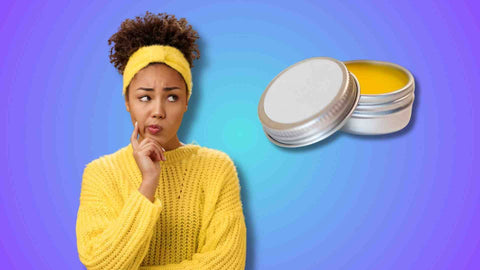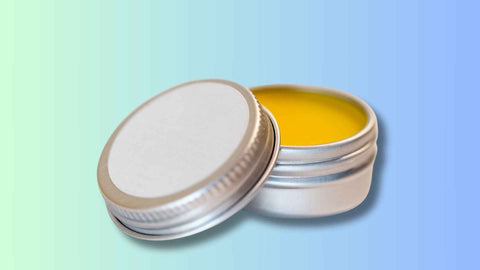What Are the Dangers of Coconut Oil Pulling?
Coconut oil pulling is widely regarded as a safe and natural method to get rid of bacteria in your mouth, but it's important for us to be aware of the potential dangers associated with it as well.
For example, one potential concern is the risk of jaw soreness and potentially exacerbating TMJ. However, you can get around this by swishing the oil gently in your mouth and slowly increasing the duration of oil pulling as your muscles get accustomed to it.
Further, if you accidentally swallow the oil, you might experience some stomach discomfort from the bacteria the oil pulled from your mouth.
Finally, oil can clog your plumbing, but you can simply choose to spit it out in a trash can after pulling to avoid this danger.
In this article, I'll explain everything you need to know about coconut oil pulling, including the dangers and benefits.
How does oil pulling work?

Oil pulling works by dislodging harmful bacteria from between your teeth before it has a chance to organize into plaque.
Essentially, the edible oil helps emulsify the bacteria and debris in your mouth, allowing it to be spit out after ~20 minutes. Clinical and diagnostic research suggests that this practice supports a healthy oral microbiome.
That being said, it takes about 20 minutes for oil pulling to have a significant impact on your oral hygiene. Therefore, it is one of the more labor-intensive oral health practices and may not fit into your daily overall health routine.
Why use coconut oil?
Coconut oil has become a popular choice for oil pulling due to its pleasant taste, easy availability, and high levels of antimicrobial lauric acid.
Studies have shown its effectiveness for oral health indicating that coconut oil pulling reduces gingivitis more effectively than sesame oil.
Another 2016 study found that coconut oil pulling is as effective as prescription mouthwash in reducing Streptococcus mutans, the bacteria responsible for tooth decay.
Additionally, research from 2009 and 2017 highlights the strong bactericidal properties of lauric acid and its ability to reduce plaque buildup.
Overall, using coconut oil for oil pulling can promote better oral hygiene and fresher breath.
Side Effects of Oil Pulling

Oil pulling is generally considered safe although it may lead to some side effects in certain individuals.
These side effects can include nausea, upset stomach, or an unpleasant taste in the mouth, especially if you do not spit out the oil properly after swishing. Some people may also experience jaw fatigue or soreness from the prolonged swishing motion required when they practice oil pulling.
Additionally, there have been rare reports of lipoid pneumonia, a condition caused by inhaling small amounts of oil into the lungs, although this risk is extremely low when oil pulling is done correctly.
Let's walk through some of the oil pulling side effects in greater detail.
Nausea
Swallowing oil during oil pulling can lead to feelings of nausea, particularly if you accidentally ingest a significant amount. This sensation may occur due to the texture or taste of the oil or just from your stomach's reaction to the oil.
To prevent any discomfort, it's crucial to spit out the oil thoroughly after swishing. Further, you can start by swishing with a small amount of oil before gradually progressing to a larger amount of oil and a longer duration of oil pulling. Finally, you can choose to start with a lighter oil that has a milder taste like sunflower oil.
Upset Stomach
Along with nausea, ingesting oil during oil pulling may cause an upset stomach for some people. This discomfort can manifest as abdominal pain, bloating, or indigestion.
To prevent this from happening, make sure that you fully spit out all of the oil after oil pulling and do your best to avoid swallowing it. You can also rinse your mouth out thoroughly with water after oil pulling to remove any residual oil that may otherwise cause stomach discomfort.
Jaw Fatigue or Soreness
Unfortunately, the repetitive swishing motion required during oil pulling can lead to jaw fatigue or soreness, especially if you perform it for an extended period. This discomfort may arise from overuse of the jaw muscles and typically resolves with rest.
Taking breaks or reducing the duration of oil pulling sessions can help alleviate this issue. Additionally, you can try gently massaging the jaw muscles before and after oil pulling to help prevent fatigue and soreness.
Lipoid Pneumonia
In rare cases, inhaling small amounts of oil into the lungs during oil pulling may lead to lipoid pneumonia, a type of pneumonia caused by lipid or oil aspiration. While the risk is minimal when oil pulling is performed correctly, it's essential to be cautious and avoid inhaling the oil.
To minimize the risk of lipoid pneumonia, you should ensure you're using the proper technique for oil pulling, which involves swishing the oil around your mouth and then spitting it out, rather than inhaling or swallowing it.
Allergic Reactions
Individuals with allergies to certain oils, such as coconut or sesame oil commonly used for oil pulling, may experience allergic reactions. Symptoms can include itching, rash, or swelling of the mouth or throat. If this sounds like you, make sure to choose an oil that you tolerate well and discontinue use if any allergic symptoms occur.
What are the benefits of oil pulling?

Proponents of oil pulling with coconut oil (or any other oil) suggest that it has benefits for maintaining oral hygiene that include:
-
Reducing oral bacteria associated with cavities and gingivitis
-
Fighting plaque induced gingivitis
-
Whitening teeth
-
Eliminating bad breath
-
Preventing periodontal disease progression
-
Lowering risk of tooth decay
These potential benefits largely come from oil pulling’s presumed ability to reduce bacterial load in your mouth.
However, there is no academic consensus on the benefits of oil pulling due to the lack of clinical research.
Bacteria
There is some evidence that oil pulling may reduce the number of bacterial colonies living in your mouth.
However, this is a newly evolving field of research and more evidence is required to fully understand the impact.
Bad Breath
By reducing the number of bacterial colonies in your mouth, oil pulling may have some impact to reduce the incidence of halitosis.
Plaque Buildup
Oil pulling is an effective treatment against plaque. In fact, one study found that "both coconut oil and sesame oil can be used for oil-pulling therapy with the aim of plaque regrowth inhibition".
Interestingly, this study also found that this same mechanism had a positive impact on tooth staining as well.
Gingivitis and Inflammation
Preliminary evidence shows that oil pulling may help fight gingivitis by reducing your plaque index. However, it is unclear how significant these results are and whether they can be replicated.
Is oil pulling safe?

Yes, oil pulling is generally considered safe for most people when performed correctly. At a high level, oil pulling involves swishing edible oil in your mouth for a period, then spitting it out, which poses little risk if you're using high-quality, organic oils like coconut or olive oil.
Just be aware that it's important not to swallow the oil you use for pulling because it contains bacteria pulled from your mouth. Otherwise, swallowing the oil can lead to stomach discomfort.
Further, if you have dental restorations, such as fillings or crowns, there's a small chance that the swishing action could dislodge them if they are already loose or weakened. While this is rare, it's something to consider and possibly discuss with your dentist.
The Risks of Oil Pulling
There are a few potential risks of oil, such as the possibility of lipoid pneumonia, a rare condition that can occur if the oil is accidentally inhaled into the lungs. This potential risk highlights the importance of swishing gently and avoiding breathing deeply during the process.
Further, other potential side effects include jaw soreness due to the prolonged swishing action, which can be mitigated by reducing your swishing intensity or duration.
Generally, you should oil pull for about 20 minutes. However, if that causes any discomfort, you can shorten the timeline.
Additionally, for individuals with heart attack risks or atheroma confirmed by tests such as CIMT (Carotid Intima Thickness Test) or a positive Coronary Artery Calcium Scoring Test, it is advised to avoid oils that can contribute to atheroma buildup.
Finally, allergic reactions to the type of oil used can also occur, especially for those of us with known allergies to coconut, sesame, or sunflower oils, but many still find oil pulling helpful for oral hygiene. However, there's no research supporting oil pulling as a treatment for periodontal disease.
How to Oil Pull with Coconut Oil

To oil pull effectively, follow these steps:
-
First choose your oil: Select a high-quality, edible oil such as coconut oil, sesame oil, or sunflower oil. Coconut oil pulling is popular due to its pleasant taste and potential antibacterial properties, but oil pulling with coconut oil isn't the end-all-be-all of this practice.
-
Measure the oil: Take about 1-2 tablespoons of oil and put it in your mouth.
-
Swish the oil: Swish the oil around in your mouth for about 15-20 minutes. Be sure to pull the oil through your teeth and around your gums. Avoid gargling or swallowing the oil.
-
Spit out the oil: After 15-20 minutes, spit the oil out into a trash can or tissue. Don't spit it into the sink as it could solidify and clog your drain over time.
-
Rinse your mouth: Rinse your mouth thoroughly with warm water or salt water to remove any remaining oil residue.
-
Don't forget to brush your teeth: To avoid improper, poor oral hygiene, be sure to follow up with your regular oral hygiene routine, including brushing with toothpaste tablets and flossing.
Repeat this process daily or several times a week for best results. Most people practice oil pulling in the morning before eating instead of at night.
In summary, oil pulling is an effective, easy-to-implement practice that can have great benefits for your dental health.
Should I try coconut oil pulling?
While coconut oil pulling has gained popularity as a natural oral hygiene practice, research suggests that using mouthwash is generally more effective for maintaining oral health.
Coconut oil pulling involves swishing oil in your mouth for about 15-20 minutes, which some proponents claim can help reduce bacteria and improve oral hygiene. However, studies indicate that traditional mouthwashes containing antibacterial agents are more effective in reducing plaque, gingivitis, and bad breath.
Mouthwash is specifically formulated to target oral bacteria and provide immediate benefits, whereas the effects of coconut oil pulling may be less pronounced and take longer to notice.
Additionally, using mouthwash can be more convenient and easier to incorporate into your daily routine. Therefore, while coconut oil pulling can be a supplementary practice for some, it is best to use mouthwash as a primary method for maintaining optimal oral hygiene.
Frequently Asked Questions
Is coconut oil pulling harmful?
Coconut oil pulling is generally considered safe and can even have oral health benefits. However, some people may experience mild side effects such as nausea or upset stomach. It's essential to use coconut oil pulling as directed and discontinue if any adverse reactions occur. As with any oral hygiene practice, consulting with a dentist is recommended to ensure it's suitable for individual dental health needs.
Do dentists recommend coconut oil pulling?
While some dentists may recommend coconut oil pulling as part of an oral hygiene routine, it's not universally endorsed by the dental community. The practice lacks robust scientific evidence to support its effectiveness in preventing dental issues. As such, dentists often prioritize traditional methods like brushing, flossing, and regular dental check-ups for maintaining oral health.
Does oil pulling damage enamel?
Oil pulling, when done correctly, does not damage tooth enamel. There's no evidence to suggest that the practice, which involves swishing oil in the mouth, harms enamel. In fact, it's considered a gentle and natural way to cleanse the mouth. However, it's always best to follow proper techniques and not substitute oil pulling for regular dental care practices like brushing and flossing.
Should you brush your teeth before or after oil pulling?
It’s generally advised to brush your teeth after oil pulling to clear away any leftover toxins or oil. However, we recommend waiting at least 30 minutes before brushing to safeguard your tooth enamel.
What is the right order of incorporating oil-pulling teeth in your routine?
The best order is to do oil pulling first thing in the morning before brushing or eating. After oil pulling, spit the oil out, rinse your mouth, and then brush your teeth as usual. This helps remove toxins and freshen your breath while maintaining oral hygiene.
Can I skip a dental visit if I frequently perform oil pulling?
No, oil pulling cannot replace regular dental visits. While it can help improve oral health, it doesn't substitute for professional cleanings and check-ups. Regular visits are essential for comprehensive care and detecting issues early.
Which oil works best for oil pulling?
Coconut oil is often recommended for oil pulling due to its antimicrobial properties and pleasant taste. Sesame oil and sunflower oil are also effective alternatives, each offering different benefits for oral health. Choose an oil based on personal preference and availability.
Where does the practice of oil pulling come from?
Oil pulling originates from ancient Ayurvedic medicine, a traditional system of healing from India. This practice has been used for centuries to improve oral health and detoxify the body. It involves swishing oil in the mouth to remove toxins and bacteria.
Is coconut oil good for your teeth?
Coconut oil is beneficial for oral health due to its natural antibacterial properties, which can help reduce plaque and prevent gum disease. It can also help improve breath freshness and support overall mouth hygiene. However, it should be used as a supplement to, not a replacement for, regular brushing and flossing.
How long can you leave coconut oil on your teeth?
You can leave coconut oil on your teeth for about 10-15 minutes when practicing oil pulling. Swishing the oil for longer periods may help remove more bacteria, but avoid swallowing it. Afterward, rinse your mouth thoroughly and brush your teeth to remove any remaining oil.






















